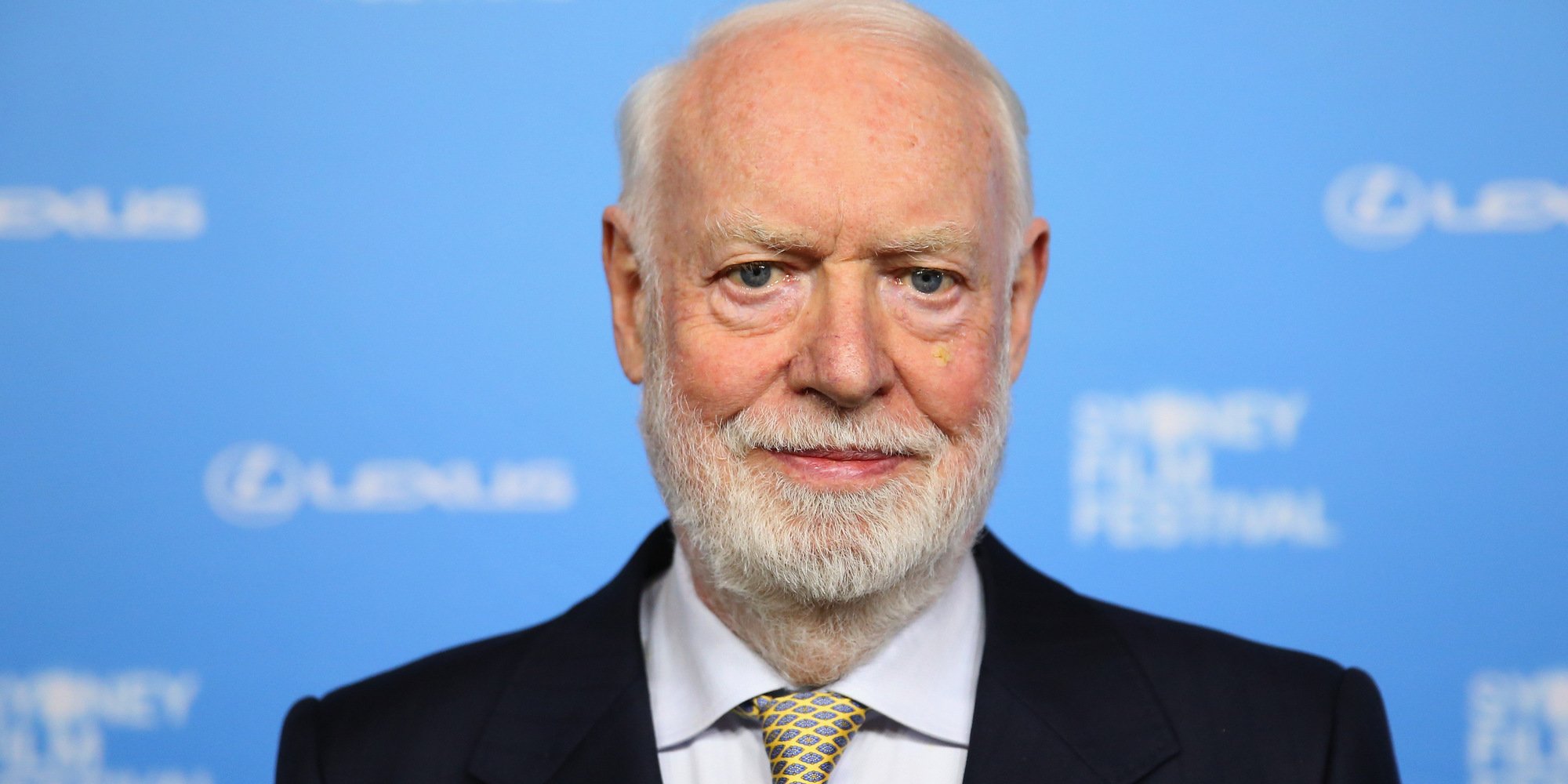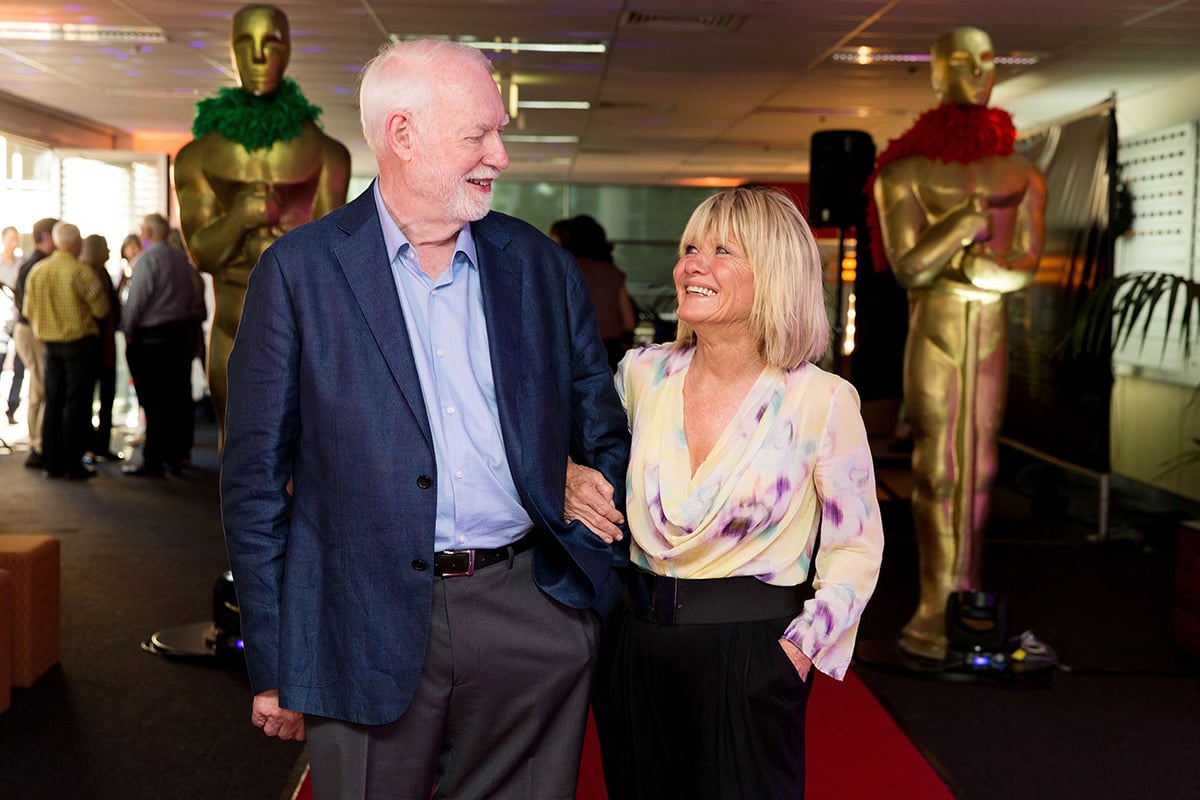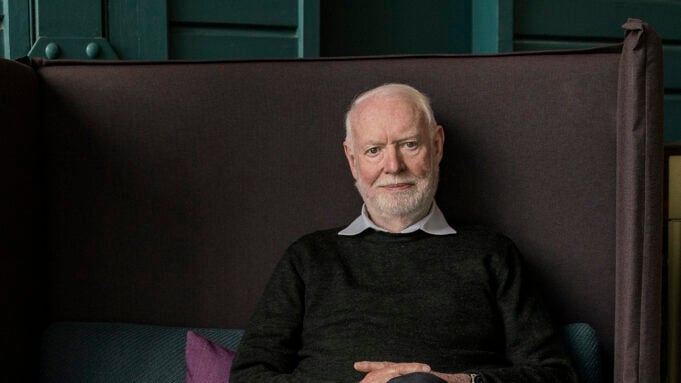“Oh David.” In a testament to their 28 years on the small screen together discussing and dissecting the big screen with passion, insight and intelligence, Margaret Pomeranz’s voice popped into the minds of many when news of David Stratton’s death at the age of 85 was announced on Thursday, August 14, 2025. On “The Movie Show” from 1986–2004, then on “At the Movies” from 2004–14, Pomeranz and Stratton were Australia’s definitive film critics. Witnessing them share their thoughts on the week’s new releases, and frequently engage in lively debates about them — their opinions often diverging — was always appointment viewing for the nation’s film lovers.
It was also inspirational. Beamed into homes weekly for almost three decades, Stratton and Pomeranz gave cinephiles an example of a dream: not just a spirited and smart unpacking of all things film, including advocating for homegrown fare, but of lives lived and careers forged through adoring and being immersed cinema. For young film obsessives growing up during the duo’s TV run together, David and Margaret were the introduction to film criticism being a profession. Compile a list of Australian film critics today influenced by the pair and it’d simply be a list of all Australian film critics today.
When “At the Movies” ended, so did an Australian institution. The ABC series even spawned its own “The Margaret & David At The Movies Boardgame,” copies of which are now a cherished cinephile treasure. Stratton and Pomeranz remained active as critics elsewhere, but Stratton’s path included achieving a rarity: becoming a film critic with a film about him. The feature version of “David Stratton: A Cinematic Life” travelled the world to film festivals, as the man at its centre did across his career — also making Stratton a film critic with a film about him that screened at Cannes.
Prolific in print for Variety and “The Australian,” the British-born Stratton retired from reviewing in 2023. The same year, after 35 years teaching at University of Sydney’s Centre for Continuing Education, he gave his last lesson. 2023 also marked four decades since he finished another pivotal role: as Sydney Film Festival’s Director across 1966–1983.

Critic, teacher, curator and programmer: combined with being a documentary subject, boardgame namesake, introducing classics on SBS and an author courtesy of six books published between 1980–2024 (three of which are about Australian film), Stratton championed cinema everywhere that he could. With Pomeranz again, he even co-hosted a Film Festival At Sea cruise. That’s also worth aspiring to: an enthusiasm for and dedication to film, and a professional life in it, that just can’t be constrained to land.
In their on-screen days, there was long a term for Stratton and Pomeranz’s influence upon Australian cinemagoing habits: the “Margaret and David effect.” If the pair reviewed a film — and put the spotlight on an Australian film in particular — awareness of it would expand significantly, causing cinema admissions and box-office takings to rise as a result. Just as crucial an achievement: making the dream of a film-worshipping existence that spread far and wide — across formats, outlets and ways of engaging with cinema; over decades; and, until he was octogenarian, seemingly tirelessly — appear tangible and real, a feat that one could genuinely strive for rather than merely fantasise about.
Stratton knew what it was like to not even contemplate that anyone could experience everything that came his way. Over dinner when “David Stratton: A Cinematic Life” enjoyed an Australian cinema release in 2017, he advised that if anyone had told him as a young boy — a child initially introduced to the magic of cinema by his grandmother — that this would be his life, “I don’t think he’d believe it.” He continued: “I don’t think in my wildest dreams I would have thought that I’d come to this.”
The thoughtfulness and honesty that Stratton applied rigorously to film criticism also shone through when he was reflecting upon his own journey. Asked if he was aware of the impression that he and Pomeranz had on the next generations of film critics, he was modest but appreciative. “Yes, vaguely. And it’s great. I think if we’ve influenced people to express their views on film, that’s wonderful.”

When Stratton published his memoir in 2008, “I Peed on Fellini: Recollections of a Life in Film” was its title. Everyone inspired by him could easily paraphrase that moniker for their own, if they’ve had the chance to spend time with him: “I Met David Stratton.”
Stratton was also cognisant of the consequences that ending “At the Movies” had upon audience viewing habits, and on opportunities to celebrate films that cinemagoers mightn’t otherwise discover. “Of course, Margaret and I are both very sad about that,” he noted. “And we are very much aware of it, because filmmakers tell us, distributors tell us, exhibitors tell us and the public tells us. But the fact is, I think we did the right thing, because you can’t keep doing this sort of thing forever.”
Ever one to share the love of cinema, giving the next generation the chance to chart the pair’s path was one of the reasons behind the decision. “I think it’s only fair to make way for younger people to do the same thing. Both Margaret and I hoped that the ABC would continue the program with younger reviewers. And they didn’t.”
Looking back after his passing upon Stratton’s cinematic life and his contribution to Australian film culture, his own voice, not just Margaret’s, echoes resoundingly in the mind as well. There’s only one rating that can apply to his impact: “five stars.”































